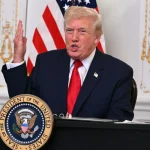The World Bank has approved a $1.08 billion loan for Nigeria to improve education, fight malnutrition, and boost economic resilience.
The funds will support various programs aimed at helping poor and vulnerable communities across the country.
The financing includes $500 million for the NG-CARES Program, $80 million for the Accelerating Nutrition Results in Nigeria (ANRIN 2.0) Project, and another $500 million for the HOPE-EDU Program.
According to the World Bank, the NG-CARES Program will help expand access to food security services, small business grants, and other support for struggling households. The ANRIN 2.0 Project aims to provide better nutrition services for pregnant women, nursing mothers, adolescent girls, and young children.
The HOPE-EDU Program will focus on improving the quality of basic education in Nigeria. The World Bank said the program will help strengthen education systems and improve learning outcomes.
World Bank Country Director for Nigeria, Dr. Ndiamé Diop, emphasized the importance of these projects.
He said, “Investing in human capital is critical for Nigeria as it offers the best opportunity to unlock the enormous potential of Nigeria. These new set of programs will help Nigeria to accelerate education quality and support to vulnerable citizens.”
Meanwhile, Nigeria and Japan have launched a venture capital initiative to support high-growth startups. The initiative will provide naira-based funding to protect startups from currency risks and give them access to long-term loans.
The Nigerian government also signed a $175 million agreement with the United Nations Industrial Development Organisation (UNIDO) to support industrial growth and job creation. Minister of Budget and Economic Planning, Senator Abubakar Bagudu, said the partnership will boost Nigeria’s industrial sector and promote sustainable economic transformation.
Additionally, the Nigerian Senate has passed the Investment and Securities Act (ISA) 2025, which aims to regulate cryptocurrency and digital assets while promoting investment opportunities. Senator Osita Izunaso, who sponsored the bill, said the new law will help Nigeria achieve President Bola Tinubu’s $1 trillion economy goal.
He stated, “Today, we have classified exchanges into two: composite exchange for multiple trading and non-composite for single security trading. This law will promote investor confidence and bring transparency to the capital market.”
The passage of the ISA 2025 is expected to help local governments secure funding for development projects through long-term loans from the capital market.











